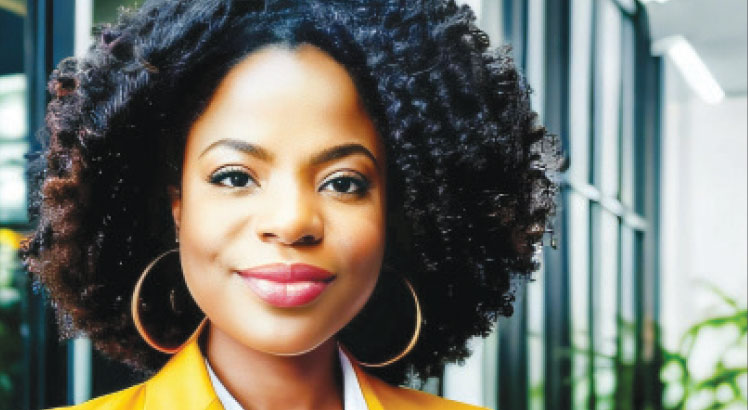Mirriam Namanja: executive director of Podcam
For most parents, learning about any difficulty or problem in their child’s development comes as a tremendous blow.
One parent says the day her child was diagnosed with a disability; she was devastated and confused. She recalls little else about those first days besides the heartbreak.
Another parent described this event as a ‘black sack’ being pulled down over her head, blocking her ability to hear, see, and think.
And, yet, another described the trauma as “having a knife stuck” in her heart.

Such descriptions might seem a bit dramatic, but they may not sufficiently describe the emotions that flood parents’ minds at the receipt of devastating news.
For Chitawira Township-based Mirriam Namanja, a mother of five, the reaction was closer to the others when she learned that her last born daughter Maria had a disability.
“I asked God, why? But I quickly realised that God gave me that child for a purpose and I had to be there for her,” she says.
Maria is now 25 and pursuing a course in Food Processing and House Keeping at the Malawi Institute of Tourism (MIT).
Born on Christmas Day, Namanja had all the reasons to call her Maria. It was not until she turned six and ready to start primary school that the mother found out her daughter had an intellectual disability.
“My daughter is able bodied and can do everything on her own. While in Standard One, Maria’s teacher made the observation and suggested special care. I took her to Cheshire Homes where it was discovered found she had brain damage and started assisting her,” she recalls.
While dealing with Cheshire Homes, she was elected chairperson of parents of children with disabilities.
“With time, we realised our voice was not as loud as it would be if we had our own organisation. That is how the Parents of Disabled Children Association of Malawi (Podcam) was birthed,” says Namanja who is at the helm of the association.
No parent chooses to have a child with disability; neither can they choose what sort of disability their child should have.
As such Podcam has a representation of parents of children with all types of disabilities, from physical to intellectual disabilities.
The association started with 15 parents in Ndirande Township and has grown to over 12 000 parents and about 16 243 children.
It is funded by the Federation of Disability Organisations in Malawi (Fedoma) and a German organisation called People with Intellectual Disabilities.
The association, represented in 23 districts and with 298 branches across the country, struggles on human and financial resources.
Since 1999 when it was established, it has grown. Among other things, Podcam equips parents with knowledge on how to care for the children and how they can help them to become self reliant.
“We also teach them about the sexual and reproductive health of children with disabilities, including HIV and Aids. Some parents assume that their children are not sexually active. Others think that sex talk is taboo and the children are the ones suffering in the end,” she says.
Regardless of a child’s type of disability, Namanja says every parent needs to find a way to communicate to their child. She adds that the parents are also equipped with knowledge on the human rights of the children with disabilities.
“For instance if a child is sent back from school because of a disability, the parents are supposed to stand up and defend the rights of that child,” she says.
Podcam is also empowering the parents economically through a revolving fund that was initially donated by FDH Bank. Through it, parents are operating different kinds of businesses from the money they borrow.
One of the parents, Rose Nsengwa from Chilomoni Township says being a member of the association has helped her find better ways of taking care of her 20-year-old son with an eye problem.
“He developed the problem after a fight. He was also epileptic. Through my association with other parents, my son has gone through secondary school and a vocational course.
“He is now a builder and has become the breadwinner of our family. Most of us leave our children because they have disabilities, but the children have a right to education,” she says.
Kate Chirwa is another parent. She lives in Ndirande Townhip and she notes that children with disabilities are often stigmatised.
“Now we are able to stand up for our children against any discrimination and help them advance in life,” says Chirwa.
The executive director advises that it is important for parents to look at the capacity of their children with disabilities and help them capitalise on those.
“A child may not do well academically, but that does not mean they cannot excel in anything else. Parents need to watch out for what the child likes to do and help them improve on such skills. Maria likes doing laundry, cooking and fixing phones. So, I decided to build on something she likes and help her earn a living out of it,” Namanja explains.
Maria enrolled at MIT for a food processing and housekeeping course. Lucky for her, MIT drew up a special programme for her.
“Some disabilities are visible and others are not. People need to always remember that a disability is not contagious and they can relate and associate with persons with disabilities just fine. My daughter cooks and bakes better than she did.
“We will not live forever so we need to equip our children for when we are gone. Every disabled child has ability to do something,” she points out.
Namanja is a secretary trained at the Malawi Polytechnic in the 1980s and has worked for various organisations before establishing Podcam.
She comes from Mapemba Village, Traditional Authority Kuntaja in Chileka, Blantyre. n





